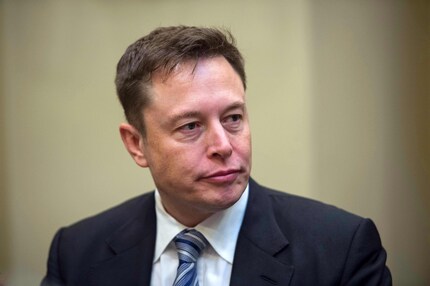
Opinion
The smartphone with a massive battery – manufacturers should look up to Energizer
by Lorenz Keller

Welcome to a brave new world, where every item from bracelets to cigarettes contains batteries. However, we have yet to learn how to use this achievement sensibly.
The petroleum age is slowly coming to an end, simultaneously kicking off the battery age. One clear sign of this: the richest person in the world is no longer an oil magnate à la Rockefeller, but battery King Elon Musk.
Sound systems, headphones, cameras, phones, mouses, keyboards, none of these devices had batteries when I was young. These days, even bicycle gears contain a battery inside. Is this really necessary? Does the world really need USB-connected sneakers with LED lighting on the soles?

Rechargeable power supplies make devices portable without needing a mountain of disposable batteries. They’re practical, of course, otherwise they wouldn’t be used everywhere. But the battery age has also brought along a few new problems.
It is said that the Internet, smartphones and social media have put us on constant alert, always requiring us to be online. What is left out: batteries contribute to this permanent state of stress as well. You’ll constantly run into empty batteries. Even before I get up, my alarm clock requires attention – I use an old dumbphone. A while later, my keyboard switches off because I didn’t notice that its battery was running low. After that, my camera turns off during a video recording. Simultaneously, I’m constantly recharging drone batteries, then it’s the smartphone’s turn in the evening as well as the headphones. And don’t you dare forget about a device for too long! It’ll simply discharge itself.
Wireless devices that need to be charged aren’t wireless, they live off power cords. As a result, my flat looks awful: I own more «wireless» devices while at the same time having more cables than ever.
I get it: the problem isn’t with batteries, constantly needing to be recharged. The problem is power consumption, which is way higher in today’s electronic devices than it used to be. The button batteries in an old calculator or a Nintendo game from the ’80s would last forever, as do the batteries in a movie camera. If it weren’t for rechargeable batteries, the electronics industry would’ve been forced to build extremely energy-efficient devices even today. But they don’t, because they don’t have to.
My Bose headphones, which cost over 600 francs, have reached the end of their life. I only managed to sell them for 16 francs. My father’s headphones from the ’70s, on the other hand, work perfectly. Not only because they have a decent cable instead of brittle cheap crap, but especially because they run without a battery.


Again, the battery itself isn’t the problem, but the fact that batteries often cannot be replaced. And if they can, they aren’t standardised like disposable ones. Every other camera or cell phone has its own battery format. If standardised battery designs were a thing, even ancient devices could be made to work again with a replacement.
But that’s not what manufacturers want at all. And we’ve become used to replacing all our equipment every few years. Except for zoomers – they never had to get used to it because they don’t know anything else.
Although the problem has been known for many years, the trend is increasingly towards non-interchangeability. Do governments really have to intervene here? This would be a miserable indictment of the entire tech industry.
It isn’t only short-lived devices that pollute the environment, batteries themselves do too. Their production requires sizeable amounts of raw materials and energy. Granted, there are steady improvements that benefit the environment: batteries last longer, contain less cobalt, and use «clean» electricity during production. Nevertheless, any device with a battery is more harmful than one without. Maybe with the exception of electric cars, but even there I’m sceptical about their environmental friendliness. Even in 2010, we’d manufactured over one billion automobiles. Trending strongly upward. Will we be able to manufacture and recycle billions of giant batteries in an environmentally friendly way? I don’t think so, Elon. The average battery contains about 10 kilos of manganese, 11 kilos of cobalt, 32 kilos of nickel and 6 kilos of lithium. Current recycling methods include: shredding or melting batteries down. Doesn’t sound like a clean solution to me.
Rechargeable batteries by themselves are a good thing. I just don’t like how they’re used. Just slap a battery in a gadget that didn’t need one before, and hey presto, it’s automatically modern and innovative! Yeah, no. Dear Manufacturers: please consider if a battery is really necessary. And if so, please make it interchangeable and agree on standard sizes that are practical.
We can also influence things a little with our purchasing behaviour. One thing’s for sure: as long as there are people buying battery-powered singing Christmas trees, the problem will continue. I wouldn’t even give one to my worst enemy. And regarding the Bluetooth speaker I’ve been toying with, I’m really starting to reconsider.
My interest in IT and writing landed me in tech journalism early on (2000). I want to know how we can use technology without being used. Outside of the office, I’m a keen musician who makes up for lacking talent with excessive enthusiasm.
This is a subjective opinion of the editorial team. It doesn't necessarily reflect the position of the company.
Show all